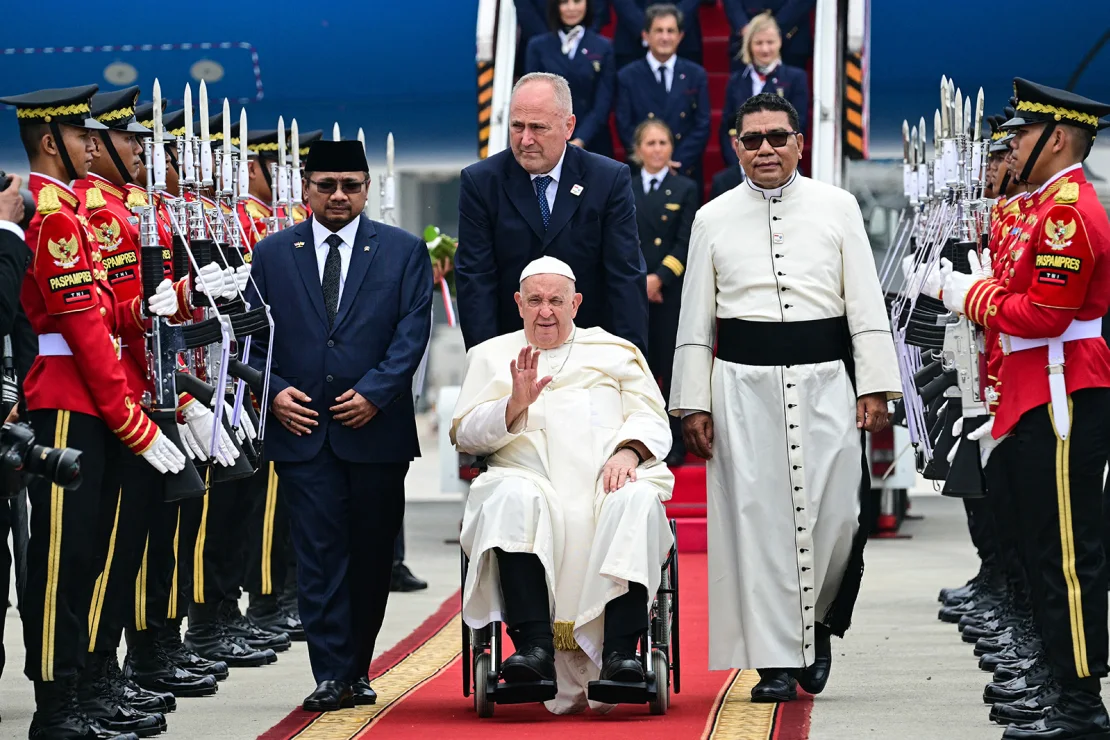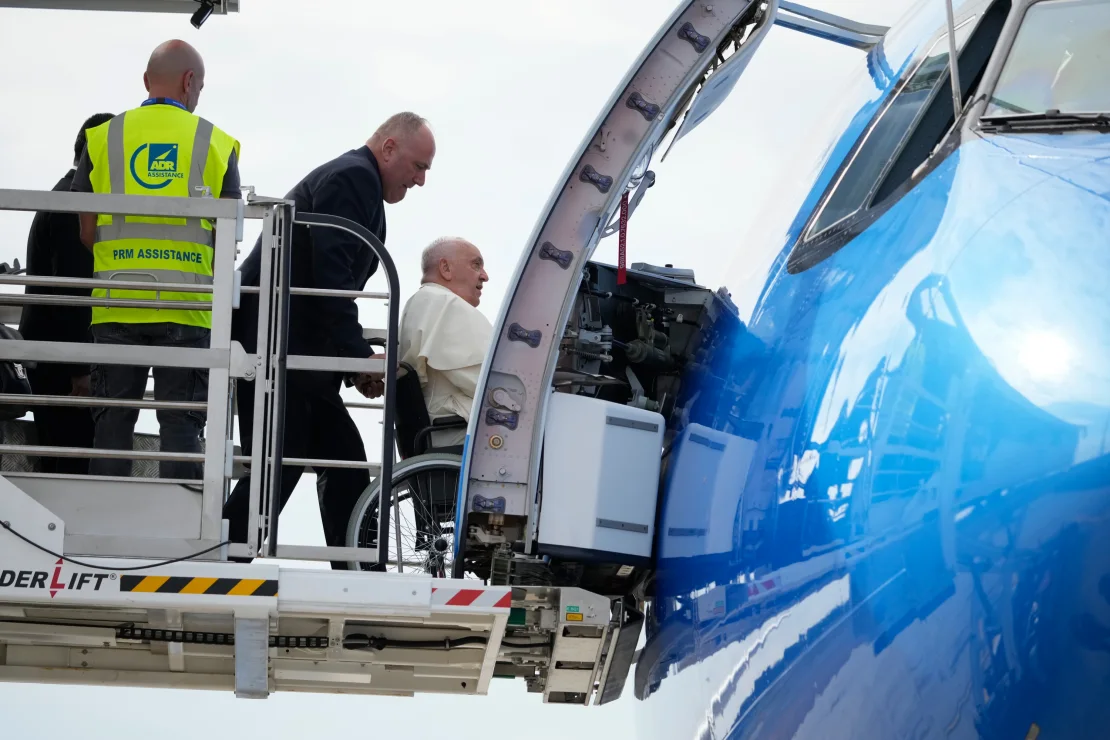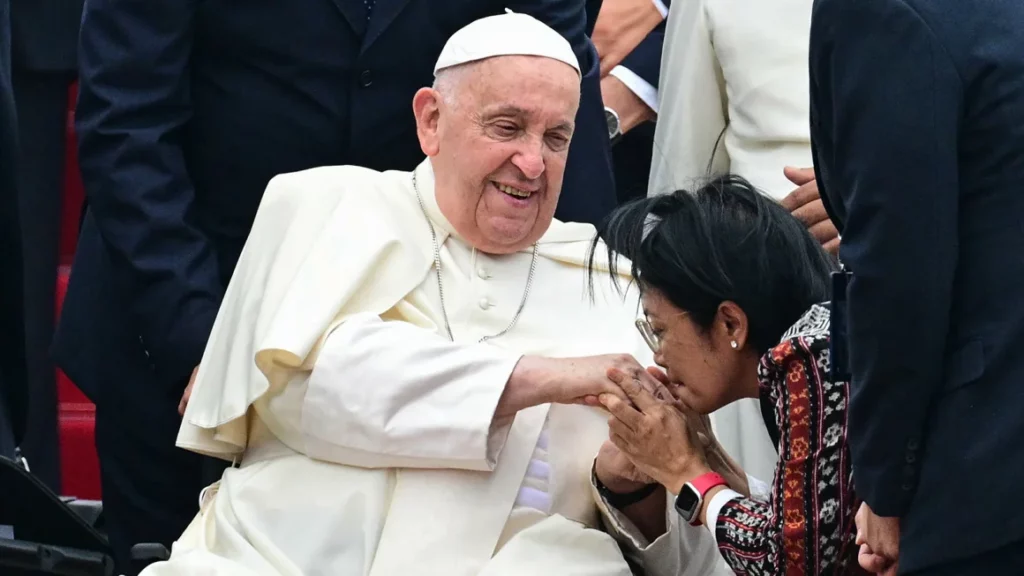Pope Francis, now 87 and using a wheelchair due to health issues, has begun the longest journey of his papacy. He arrived in Indonesia on September 3, 2024, launching a 12-day tour that will take him to four nations in Southeast Asia and the South Pacific, including Papua New Guinea, East Timor, and Singapore.
This extensive trip ranks among the longest undertaken by any pope and covers a distance of about 32,814 kilometers (approximately 20,000 miles), making it the farthest he has traveled since his election in 2013. Upon landing in Jakarta, he remarked that the more than 13-hour flight was the longest he has experienced.
The visit aims to emphasize significant themes of his papacy, such as interfaith dialogue and environmental protection, while also highlighting a notable shift within the Catholic Church towards Asia.
Throughout his papacy, Francis has made 44 foreign visits, including countries like South Korea, Japan, the Philippines, Thailand, Myanmar, and Bangladesh. He has appointed cardinals from the Philippines and South Korea to prominent positions in the Church’s central administration.

The Catholic Church is evolving from a Eurocentric organization to one where regions like Asia, Africa, and Latin America increasingly have a voice. Francis, who aspired to be a missionary in Japan during his youth, has expressed support for church leaders from outside Europe.
His arrival in Indonesia, the country with the largest Muslim population in the world, underscores his commitment to Asian priorities. Fr. Antonio Spadaro, a Vatican official and close advisor to the pope, stated that Asia has always been significant to Francis.
While Catholics in Asia often represent a minority, they play a vital role in education and charitable efforts. Spadaro noted that the pope values the vibrancy of faith over sheer numbers.
During his time in Indonesia, the pope will engage in dialogue with various religious leaders and sign an interfaith declaration at the Istiqlal Mosque in Jakarta, the largest mosque in Southeast Asia. He is also expected to visit a connecting underpass known as the “tunnel of friendship” between the mosque and a nearby Catholic cathedral.
Christina Kheng, a Catholic theologian from Singapore, emphasized the importance of interfaith dialogue in countries like Indonesia and Singapore, where coexistence with other religions is essential.
Spadaro highlighted the pope’s intent to foster dialogue with Islam, particularly noting East Timor’s adoption of a significant human fraternity document that Francis co-signed.
In contrast to many European or U.S. churches grappling with polarization and secularization, the churches in Asia have a distinct character. Michel Chambon, an expert in Asian Catholicism, remarked that the Vatican aims to build relationships and understanding within these nations.

The backdrop of Francis’s visit includes the Vatican’s complex relationship with China, where religious practices are restricted. Despite criticism of the 2018 agreement between the Holy See and Beijing, the Vatican maintains that it is yielding positive results, with hopes of establishing a permanent office in China.
As he travels through regions vulnerable to climate change, including Papua New Guinea, the pope will again stress the moral imperative of environmental protection, urging global leaders to take action.
This ambitious journey, occurring after more than 11 years in office, counters perceptions that Francis’s papacy may be losing momentum. Spadaro remarked that it underscores the current vitality of his leadership.
Despite the inherent risks associated with such a demanding trip at his age, Francis is determined to undertake this significant journey, traveling with a doctor and two nurses for support.

